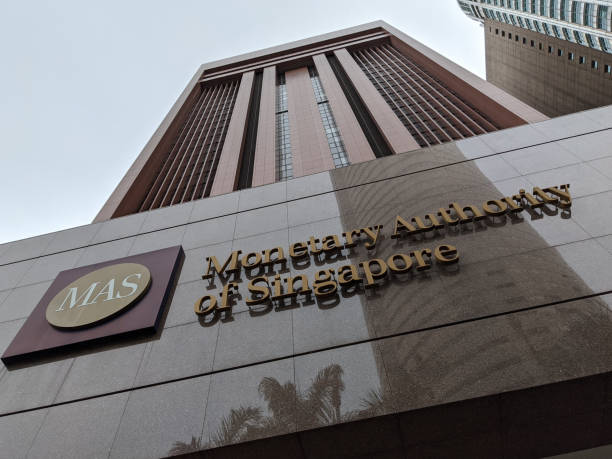Cryptocurrency has gained significant popularity in recent years, revolutionizing the way we perceive and utilize digital currencies. In this exploration of “Singapore regulation on cryptocurrency,” we delve into the intricate web of rules and guidelines established by the Monetary Authority of Singapore (MAS).
From cryptocurrency trading to broader crypto regulation in Singapore, we will unravel the intricacies of this regulatory landscape, shedding light on how it impacts the thriving crypto and blockchain industry in Lion City. Join us on this informative journey through the ever-evolving world of cryptocurrency in Singapore.
Table of Contents
ToggleIntroduction to Cryptocurrency
What are Cryptocurrencies?
Cryptocurrencies, often referred to as crypto, are digital or virtual currencies that utilize cryptography for security. They operate on decentralized networks called blockchains, which provide transparency and immutability.
Unlike traditional fiat currencies, cryptocurrencies are not issued or regulated by central banks or governments.
Technologies behind Cryptocurrency
Cryptocurrencies rely on various technologies to function effectively. The most notable technology is blockchain, which ensures the security, immutability, and decentralization of transactions.
Other technologies include smart contracts, which allow the execution of predefined conditions, and tokenization, which enables the creation of digital assets.
Features of Blockchain Affecting Cryptocurrencies
The blockchain technology offers several features that have a significant impact on cryptocurrencies. These features include transparency, security, immutability, and decentralization.
Transparency ensures that all transactions are visible to the public, while security and immutability protect the integrity of the transaction data.
Coins vs Tokens
Within the cryptocurrency ecosystem, there are two main categories of digital assets: coins and tokens. Coins, such as Bitcoin and Litecoin, function as standalone currencies.
On the other hand, tokens are constructed on already-established blockchain systems like Ethereum. Tokens can represent various assets, including utility, security, or even real-world assets.
Role of Monetary Authority Singapore (MAS) in Cryptocurrency Regulation
Growing Digital Asset Capabilities
The Monetary Authority of Singapore (MAS) acknowledges the growing capabilities of digital assets and their potential impact on the financial industry.
MAS recognizes the importance of balancing innovation with investor protection and has been proactive in establishing regulatory frameworks for the cryptocurrency industry.
Creating Guidelines for Managing Risks in Cryptocurrency
MAS aims to create guidelines and regulations that effectively manage the risks associated with cryptocurrency activities. These guidelines help protect investors, ensure compliance with anti-money laundering (AML) and counter-terrorism financing (CTF) regulations, and promote the stability and integrity of the financial system.
Consumer Access
MAS recognizes the importance of providing consumers with access to reliable and secure cryptocurrency services. The regulatory framework established by MAS aims to foster a competitive and vibrant cryptocurrency ecosystem while protecting retail customers from potential harm.
Business Conduct
MAS sets standards for business conduct in the cryptocurrency industry to safeguard the interests of consumers and promote fair and transparent practices. By establishing clear guidelines and enforcing regulations, MAS aims to build trust and confidence in the cryptocurrency sector.

Singapore Regulation on Cryptocurrency
Overview of Cryptocurrency Regulations
Singapore has implemented a comprehensive regulatory framework for cryptocurrencies and related activities. The regulatory framework is primarily governed by the Payment Services Act (PSA) and the Securities and Futures Act (SFA), which provide guidelines for cryptocurrency exchanges, digital payment token services, and other relevant entities.
Impact of Cryptocurrency Regulations
The regulations imposed by MAS have several impacts on the cryptocurrency industry in Singapore. The regulations help protect investors and consumers from potential risks, promote responsible business conduct, and prevent money laundering and terrorist financing activities. Furthermore, clear regulatory guidelines attract reputable cryptocurrency firms and foster innovation in the sector.
Singapore and Thailand Comparison
Blockchain and Cryptocurrency Laws in Singapore
Singapore has embraced blockchain and cryptocurrency technologies, recognizing their potential benefits while implementing robust regulations.
The country has established legislative frameworks that govern the issuance, trading, and use of cryptocurrencies, promoting a secure and well-regulated industry.
Blockchain and Cryptocurrency Laws in Thailand
Thailand has also shown a positive attitude towards blockchain and cryptocurrency technologies. The country has implemented regulations and licensing requirements for cryptocurrency-related businesses, aiming to create a conducive environment for the industry’s growth.
Legality of Buying Cryptocurrency in Singapore and Thailand
In both Singapore and Thailand, buying and owning cryptocurrencies for personal use is generally legal. However, regulatory compliance is necessary for businesses operating in the cryptocurrency space.
Regulations on Cryptocurrencies and Crypto Trading in Singapore and Thailand
Singapore has specific regulations for cryptocurrency exchanges and digital payment token service providers, ensuring proper KYC (Know Your Customer) and AML procedures.
In Thailand, the Securities and Exchange Commission (SEC) regulates digital assets, including cryptocurrencies, requiring appropriate licensing for cryptocurrency-related businesses.
Singapore’s 2023 laws and regulations governing blockchain and cryptocurrencies
Government Attitude and Definition
The Singaporean government maintains a positive attitude towards blockchain and cryptocurrency technologies, recognizing their potential benefits while emphasizing the importance of regulation.
The government defines cryptocurrencies as digital payment tokens, recognizing their role as a medium of exchange.
Cryptocurrency Regulation
Singapore has established a comprehensive regulatory framework for cryptocurrencies, primarily governed by the PSA and SFA. The regulations cover various aspects, including licensing requirements, AML/CFT measures, and consumer protection.
Sales Regulation
The regulation of cryptocurrency sales ensures proper investor protection and reduces the risk of fraudulent activities. MAS imposes strict rules on initial coin offerings (ICOs) and digital token exchanges, promoting transparency and accountability.
Taxation
Singapore follows a tax-friendly approach to cryptocurrency taxation. Cryptocurrency transactions are generally not subject to Goods and Services Tax (GST).
However, individuals and businesses engaged in cryptocurrency-related activities may still be liable for income tax or goods and services tax in certain circumstances.
Frequently Asked Questions about Singapore regulation on cryptocurrency
Is cryptocurrency regulated in Singapore?
Yes, cryptocurrency is regulated in Singapore. The regulatory framework for cryptocurrency is primarily overseen by the Monetary Authority of Singapore (MAS).
Which crypto platform is regulated in Singapore?
Several cryptocurrency platforms are regulate in Singapore. To find out which platforms are currently regulate, you should refer to the official website of the Monetary Authority of Singapore (MAS) for an updated list of licensed digital payment token service providers.
Is Crypto.com regulated by MAS Singapore?
Crypto.com, as a cryptocurrency service provider, may be subject to regulation in Singapore, depending on the specific services it offers.
To confirm its regulatory status, you should check with the MAS or visit Crypto.com’s official website for information on its regulatory compliance in Singapore.
Which bank is crypto-friendly in Singapore?
Revolut is a crypto-friendly bank in Singapore. It is a leading online bank that is popular because of its cryptocurrency services.
In Singapore, do I have to pay taxes on Bitcoin purchases?
Tax havens for bitcoin businesses and individuals can be found in Singapore. Singapore does not have a capital gains tax, thus neither businesses nor private investors are liable for it. So you won’t have to pay Capital Gains Tax when you sell or trade cryptocurrency.
Conclusion
In conclusion, the evolving landscape of Singapore regulation on cryptocurrency in 2023, overseen by the Monetary Authority of Singapore (MAS), reflects a dynamic approach towards crypto and token-based assets.
As the global crypto market continues to expand, understanding the nuances of cryptocurrency regulation becomes paramount. Staying abreast of these developments is essential for anyone involve in the crypto ecosystem, whether as an investor, business operator, or enthusiast.




